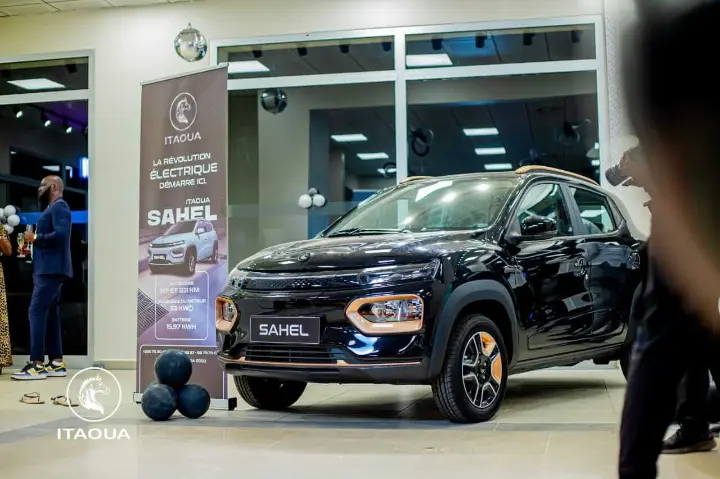In a bold leap toward technological self-sufficiency and climate-smart innovation, Burkina Faso has introduced its first domestically developed electric vehicle (EV), proudly named ITAOUA. This milestone positions the West African nation as a rising player in Africa’s clean mobility revolution.

Locally Engineered, Globally Relevant
Designed and built entirely by Burkinabé engineers, ITAOUA is more than just a vehicle—it’s a statement of intent. The EV boasts a battery range of up to 330 kilometers on a 30-minute charge and incorporates solar panels, demonstrating an innovative blend of mobility and renewable energy. The project is headquartered in Ouaga 2000, an emerging business and tech district in Ouagadougou.
What makes ITAOUA especially noteworthy is its indigenous design and assembly, a rarity in Africa’s auto industry, which largely relies on imports and foreign technology. This local-first approach not only promotes industrial autonomy but also nurtures domestic talent in engineering, energy, and design.
Economic Catalyst and Green Transition Enabler
Beyond its engineering credentials, the ITAOUA project represents a powerful economic and environmental lever. Local production opens doors for job creation across multiple sectors—vehicle manufacturing, solar integration, battery services, and after-sales support.
From an environmental perspective, the shift away from combustion engines aligns with Burkina Faso’s climate goals and Africa’s growing commitment to the Paris Agreement. Reduced fuel dependency, lower emissions, and the use of solar charging infrastructure reinforce a long-term vision for sustainable urban mobility.

Infrastructure and Policy: The Road Ahead
Despite the fanfare, success will depend on the rollout of reliable charging networks, supportive regulation, and access to essential EV materials like lithium. However, early signals from the government suggest an appetite for driving adoption—through fiscal incentives and private-sector collaboration.
A Pan-African Signal of Possibility
Burkina Faso’s foray into electric mobility is a landmark moment, not just for the country, but for the continent. At a time when Africa is often seen as a consumer rather than a creator of green tech, ITAOUA shifts the narrative. It reflects a growing confidence among African innovators to design climate solutions that respond to both local and global needs.
If supported strategically, ITAOUA could become a blueprint for other African nations pursuing clean energy transitions from the ground up.